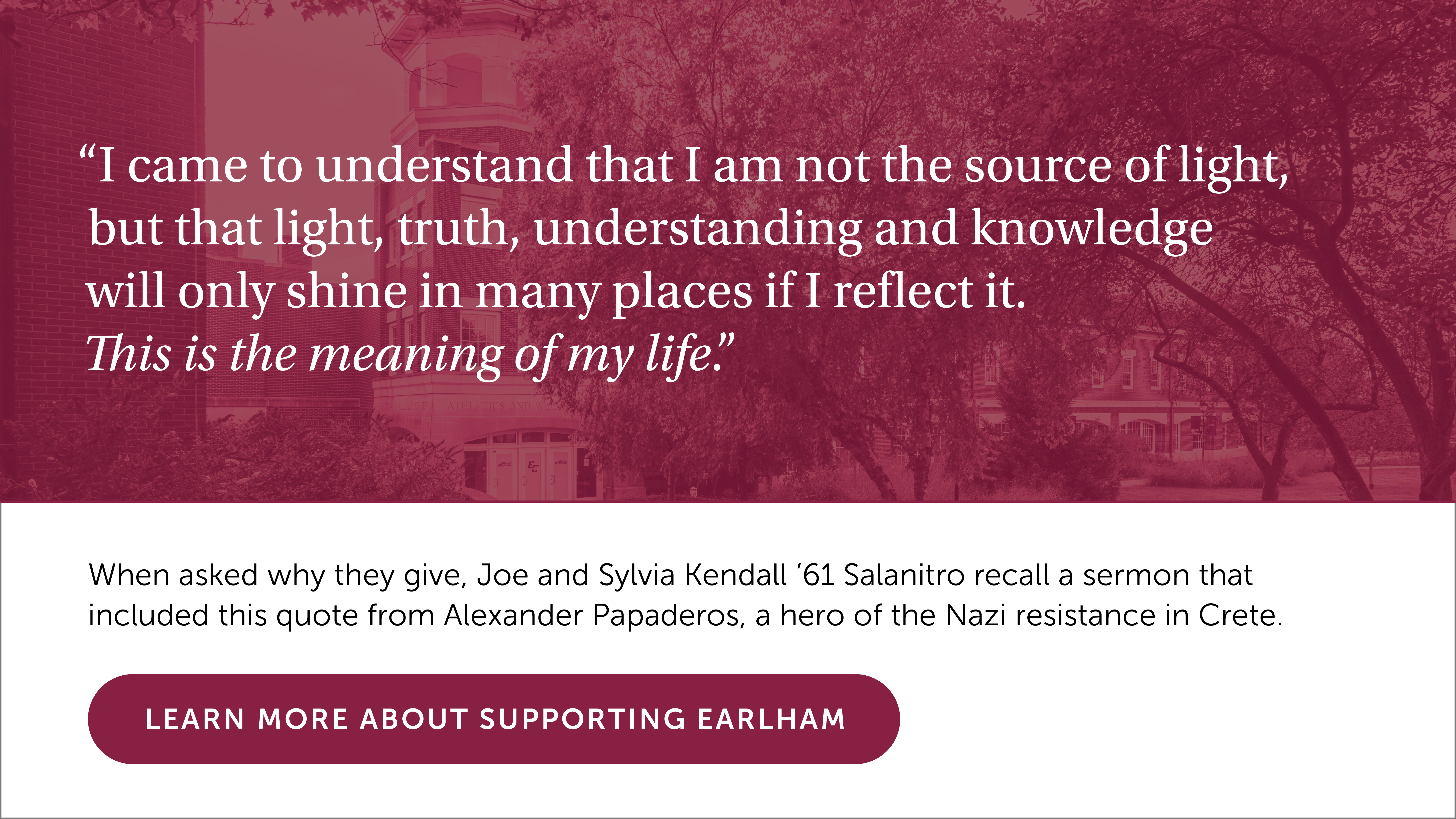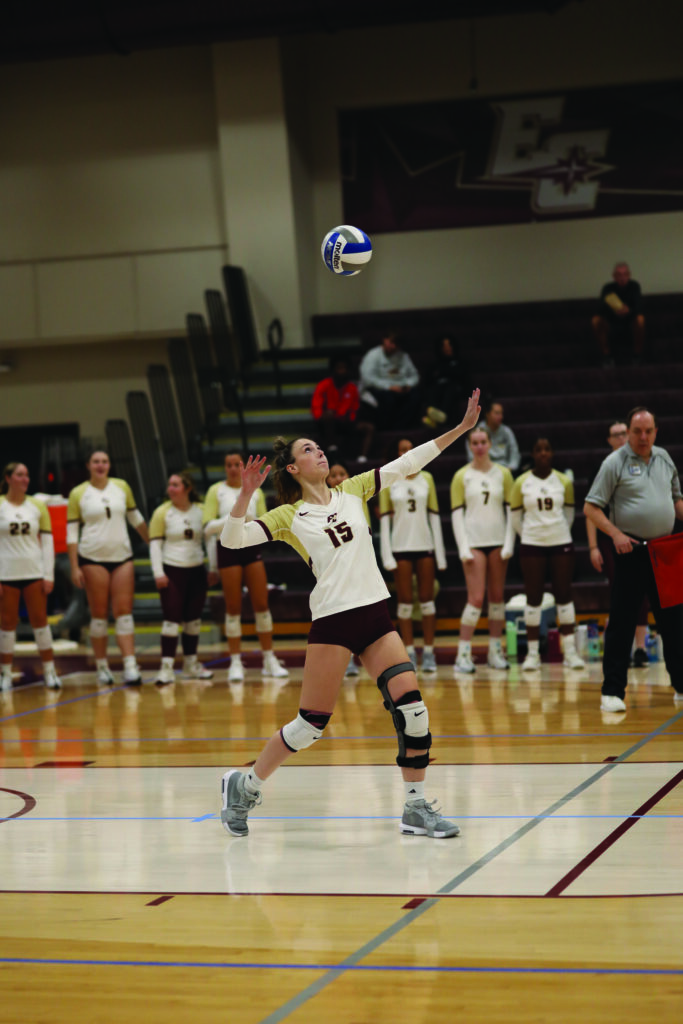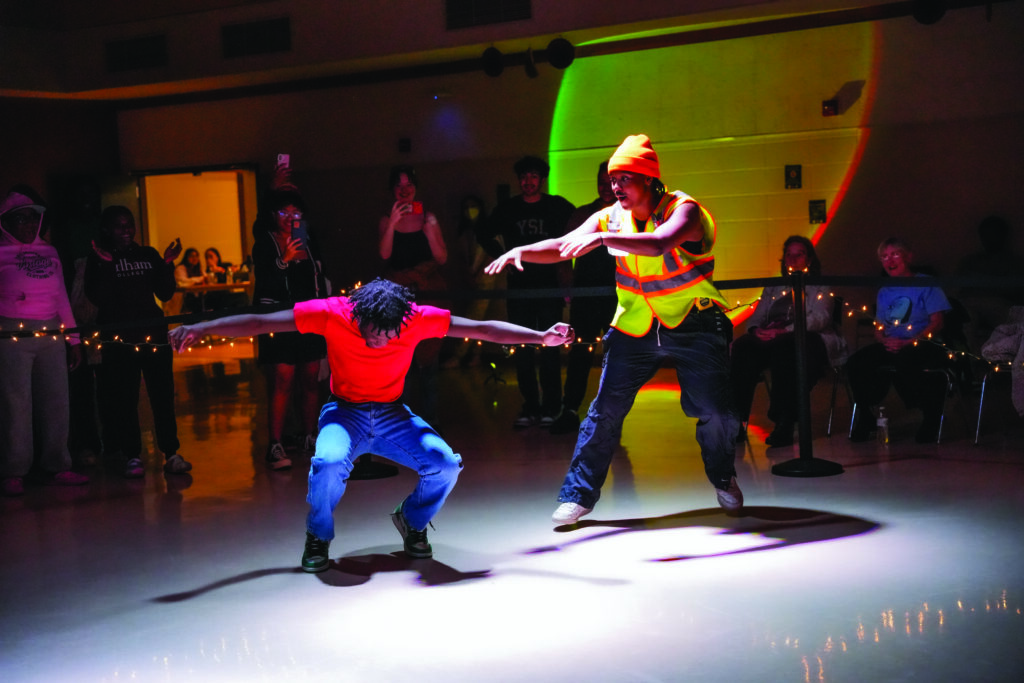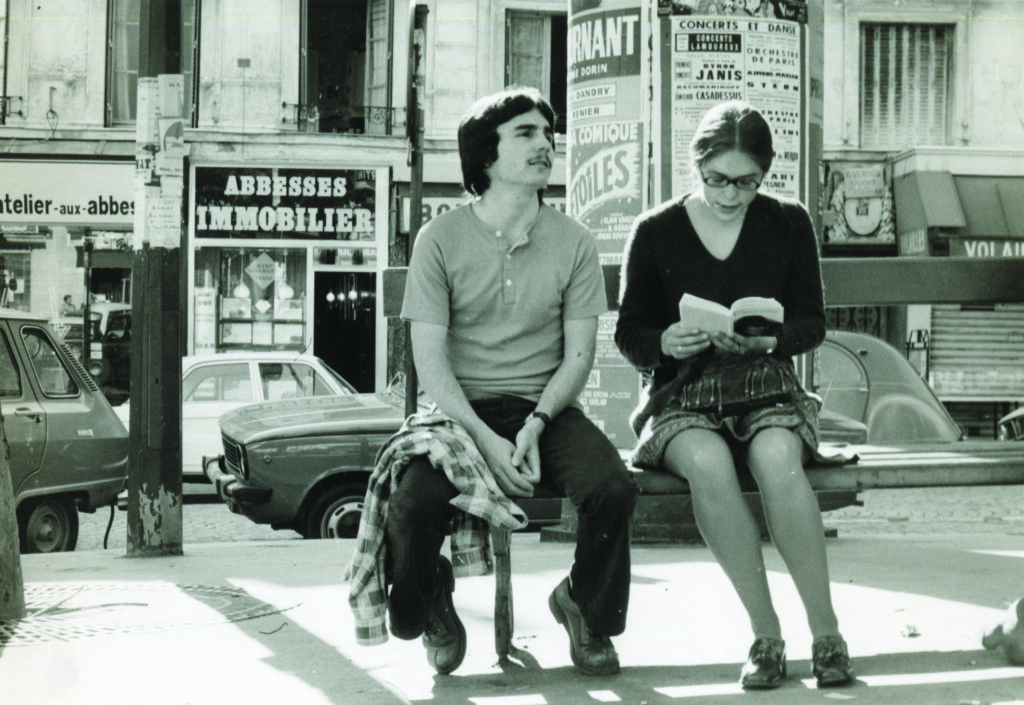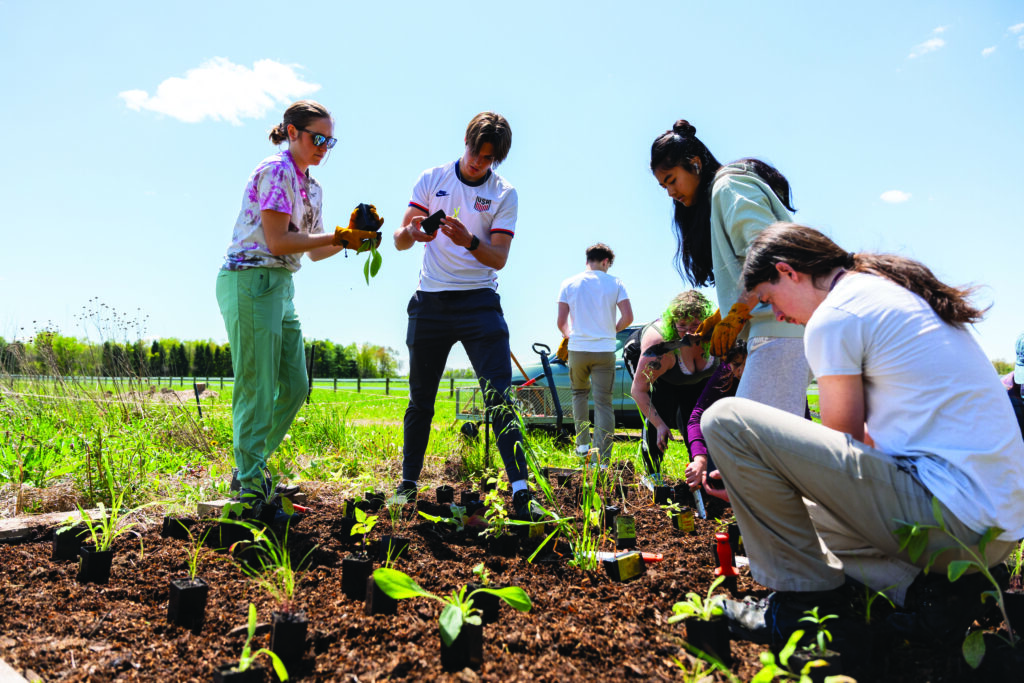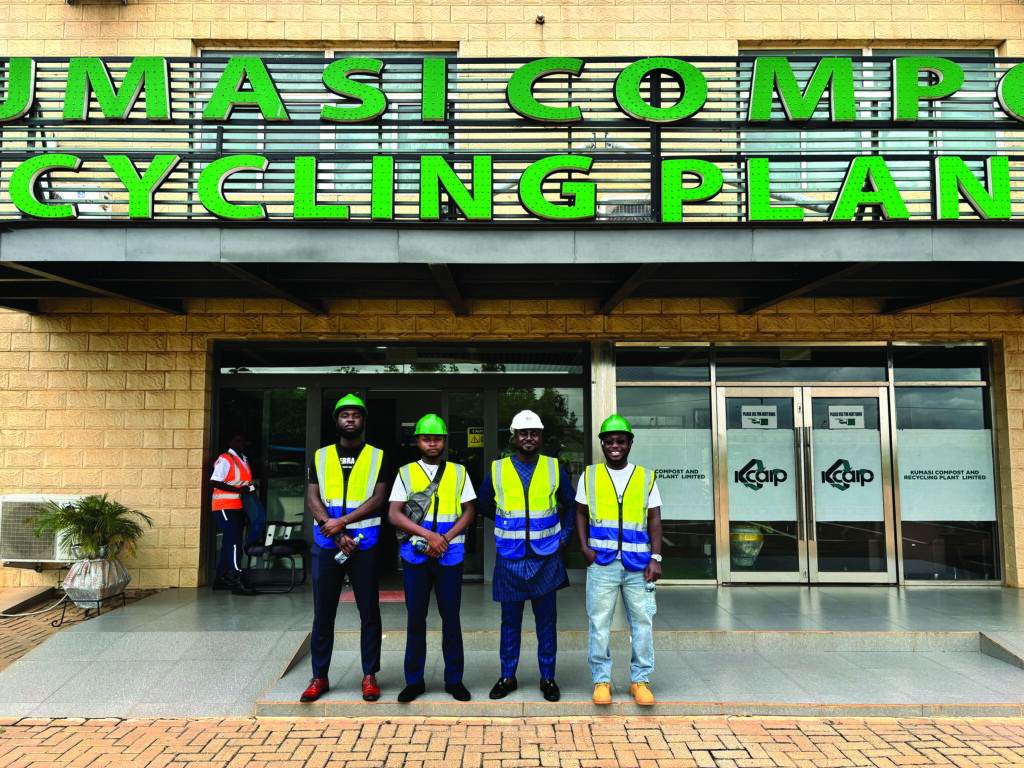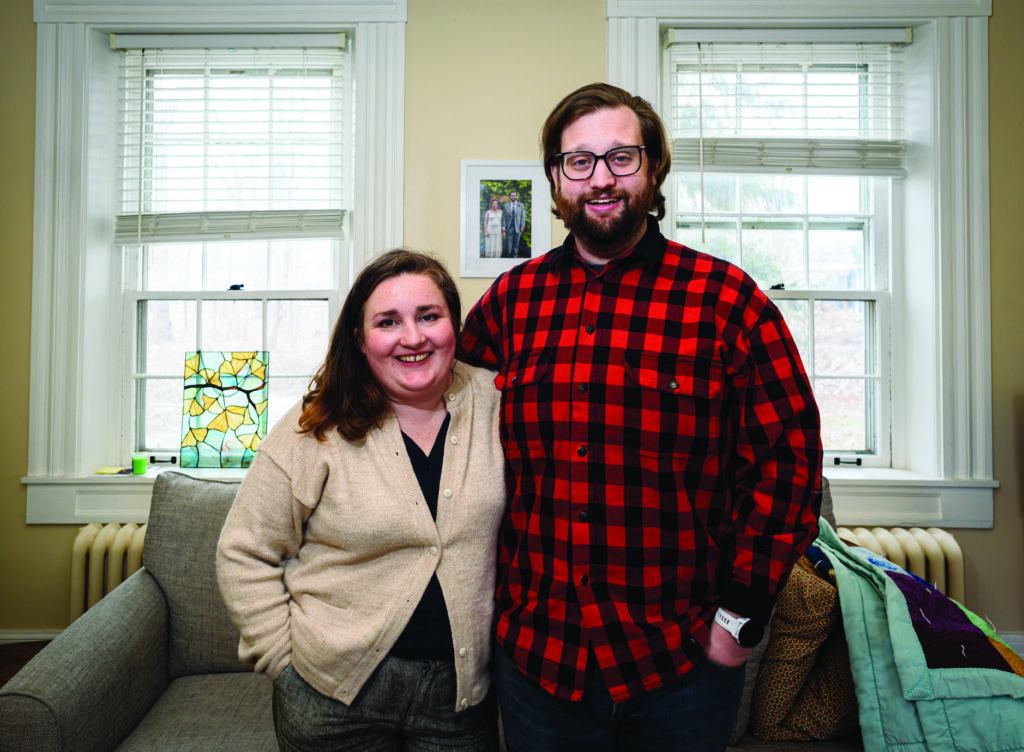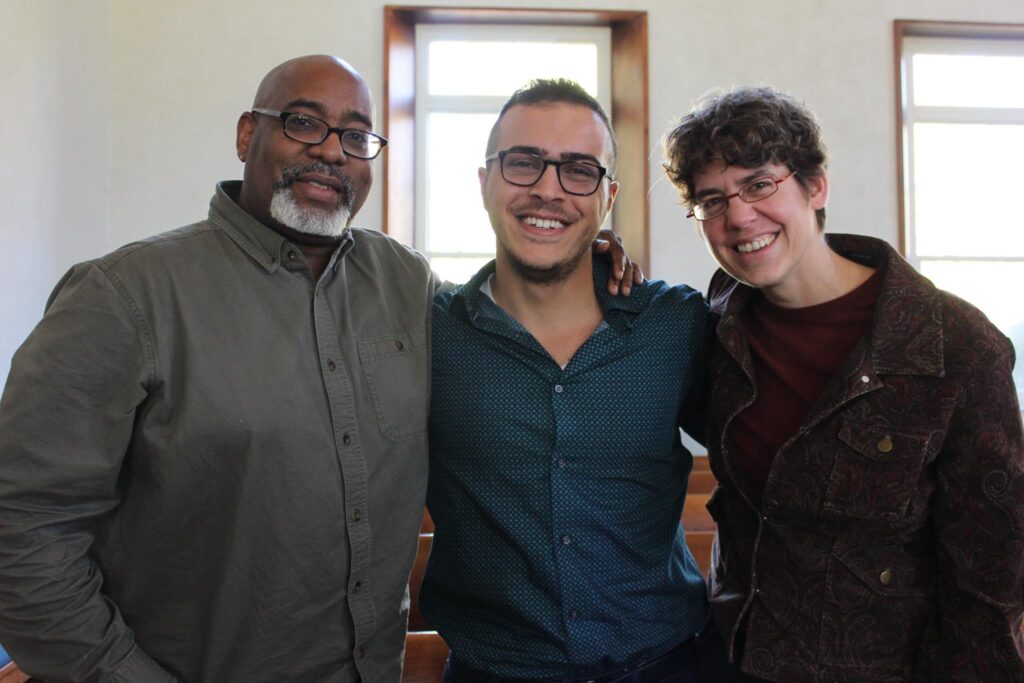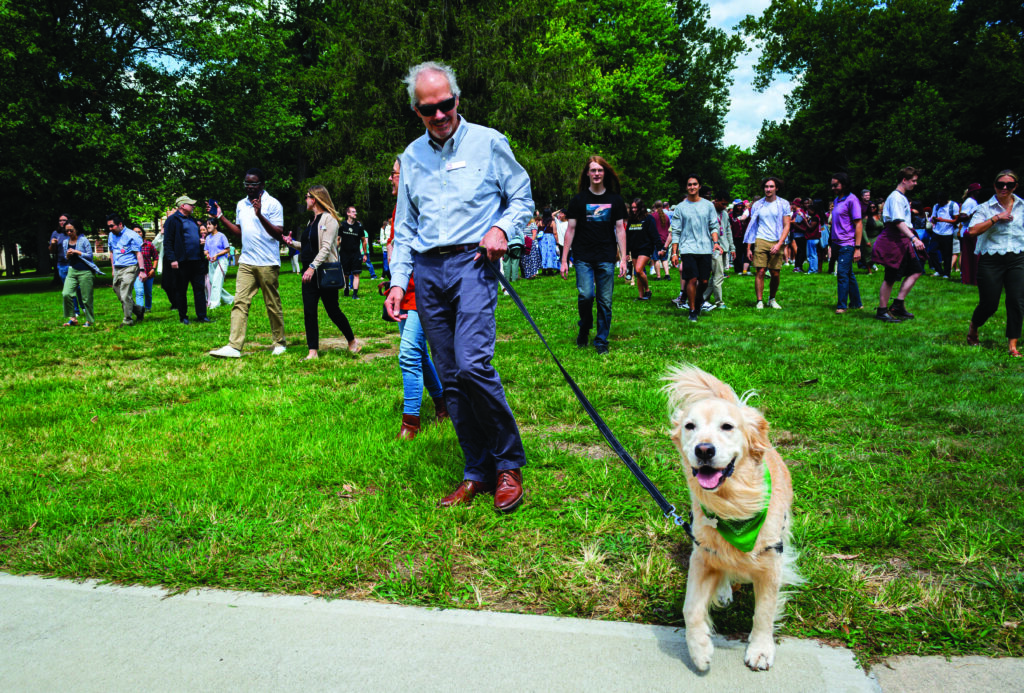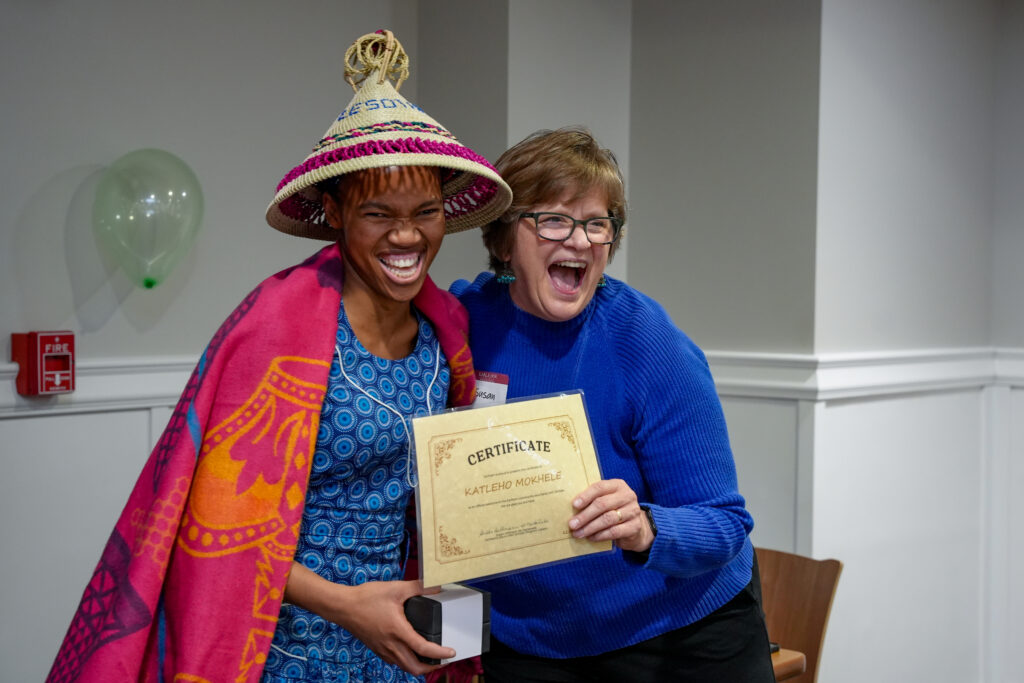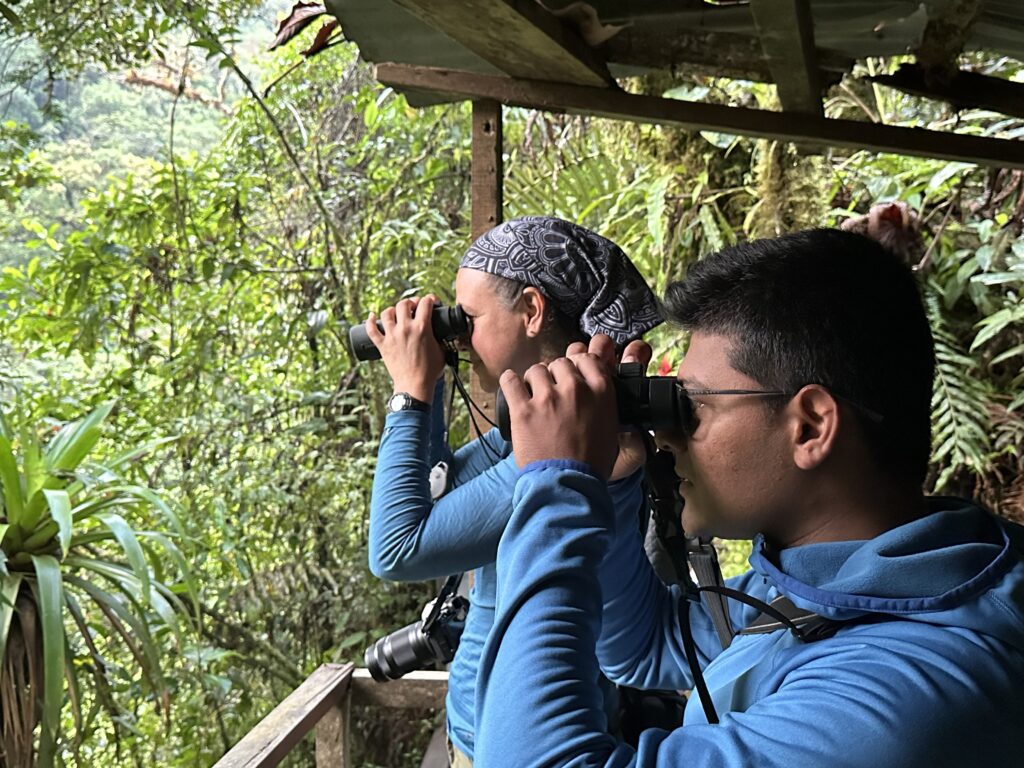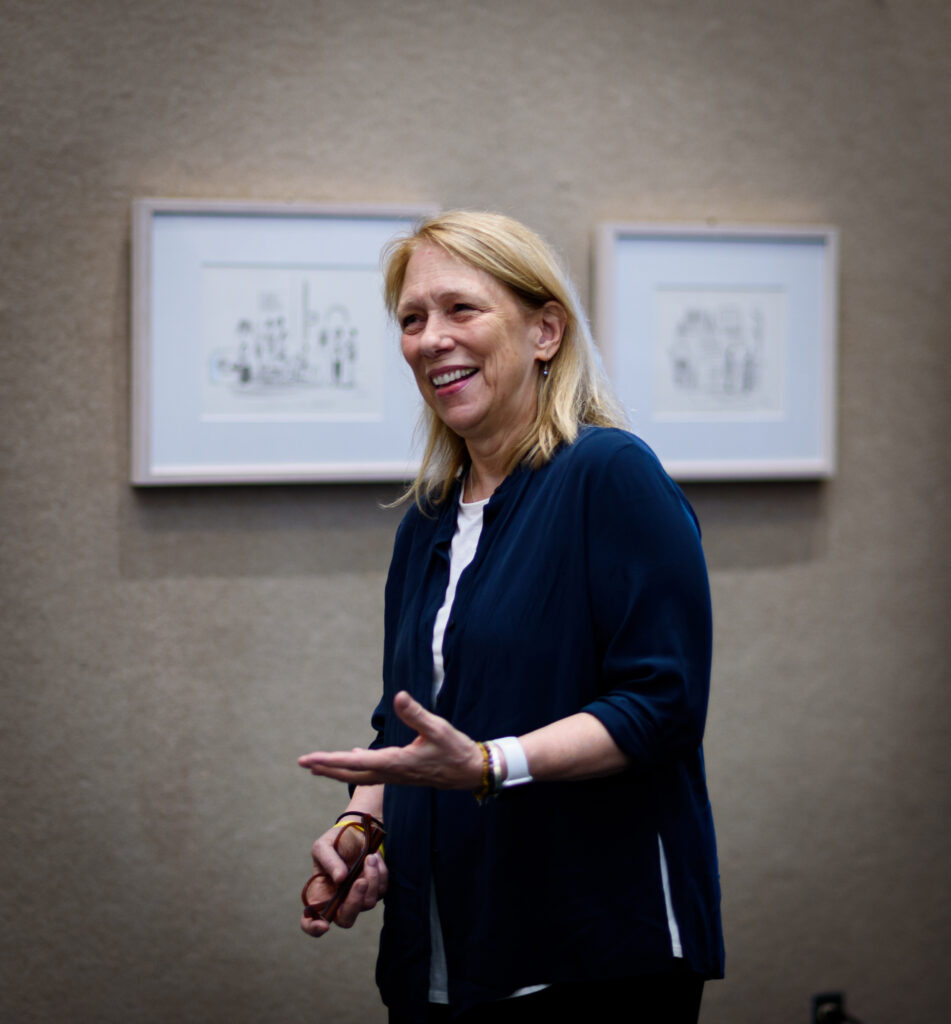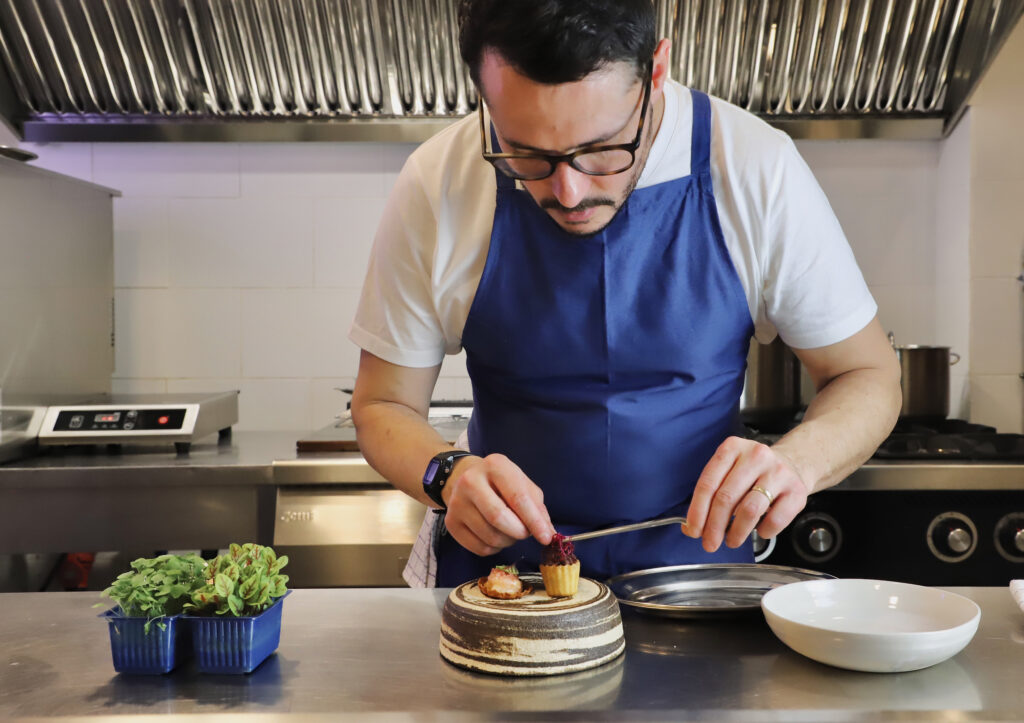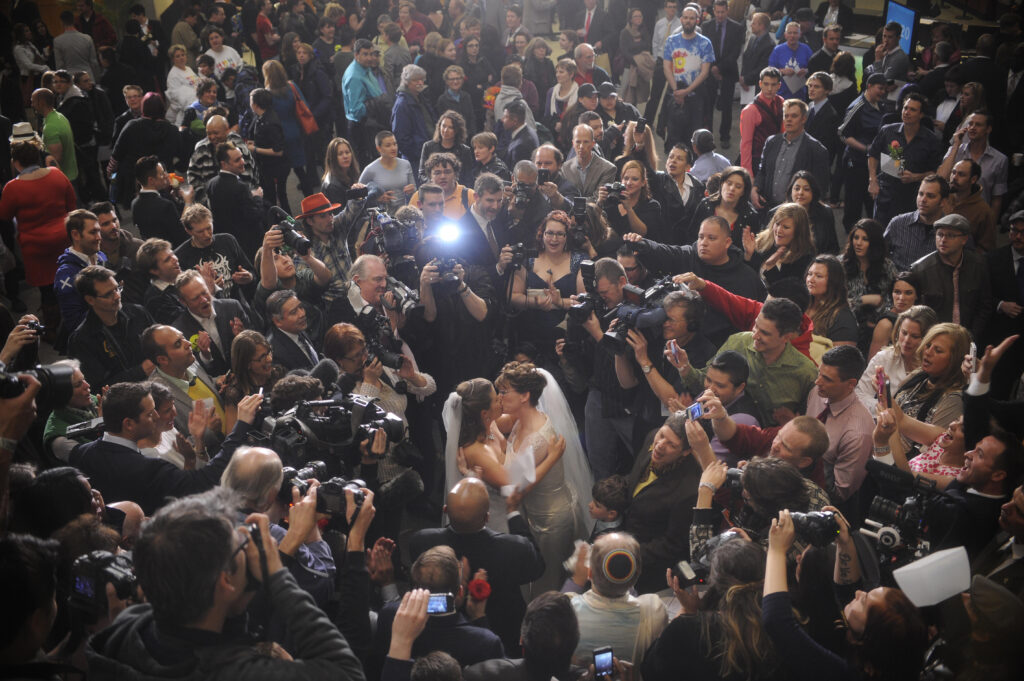Earlhamites have a history of founding nonprofits and other organizations with the purpose of helping others. Here are four making the world a brighter place today.
When Kelsey Crowe ’91 learned that a close friend from graduate school had been diagnosed with breast cancer, she was surprised by her response.
“I didn’t know what to do or say, so I didn’t do anything,” Crowe said. “I felt very badly about that.
“With my Ph.D. in social science, I started researching things like ‘What do you say?’ or ‘What do you do?’ I learned a lot,” she said.
There is No Good Card for This: What to Say and Do When Life Is Scary, Awful, and Unfair to People You Love was published in 2017 after a decade of extensive research and a search for a publisher. The book’s popularity nearly earned a spot on the New York Times’ best-seller list.
“I was surprised,” Crowe said. “I hadn’t done any publishing in the past publicly, but I had started a newsletter on the topic of empathy that I still publish today.”
For three years following the release of the book, Crowe led workshops and lectures independently until she realized her pursuits could benefit even more people through the creation of an organization, Empathy Bootcamp.
Today Crowe has joined a diverse legacy of proud Earlham-educated organizational founders who are sparks for good the world over, as can be seen in the examples below.
Crowe’s Empathy Bootcamp, based in the San Francisco Bay, is an organization that offers empathy training to transform managers into leaders and groups into teams. Established in 2020, the organization relies on a team of experts—therapists, psychologists, educators, theologians, researchers—to bring Crowe’s vision to life.
Her team is values-led, “Just like an Earlham education,” she said. “This approach, values-based leadership, really attracts people to you. They are an incredibly talented group of professionals who share and expand my vision because they want this for places of work, our personal lives, and the world.”
Empathy Bootcamp serves a broad set of clients with in-person and online training.
“We work with a range of companies in a range of areas, including diversity, equity and inclusion work, talent development, to people in the education sector who want to respond to students and families who are in crisis, or people who are burned out and want to better understand their own situations,” Crowe said.
The Empathy Bootcamp aims to be a healing resource for a world often divided by polarization and conflict.
“People confuse empathy with emotionality,” Crowe said. To the contrary, she believes that empathy can provide a path to better reasoning. The skills just need to be developed.
“That’s what I think people appreciate about our work,” she said. “It’s very practical. People know that it’s good to be kind but most of the time—many people think they already are. We operationalize what that looks like and feels like.
“Our work also transposes skills learned about vulnerability and grief into matters of difference and inclusion,” she said. The teaching finds ways to explain what being a good ally could look like—and also when restraint would be the more helpful action to take. “Terms like ‘setting boundaries’ or just saying ‘no’ lack a kind of grace and can seem a bit artificial. And ‘be kind’ is actually too abstract for us as well. We really break it down.”
Crowe’s movement, she explained, couldn’t have happened without Earlham or Earlhamites, who have been among her most ardent supporters in the areas of fundraising, participating in research or simply filling out surveys.
“There is pride when people from Earlham do something,” she said. “We’re all boosters for each other.”
In fact, building networks and asking for help have been an essential recipe for success in her journey as a founder.
“You cannot start something new alone. And if you are starting with few financial resources, you have to ask for favors from everyone, everywhere,” Crowe said. “I would meet someone on the plane who knew something about social media, and I’d ask for their help. I’d drum up the contact of an old colleague or fellow Earlham alum and ask for help. If you knew me, I had probably asked you for help.
“You also have to feel grateful for people’s help,” she said. “The gift of their volunteer time is worth more than what you can pay them. And that is an incredible honor.”
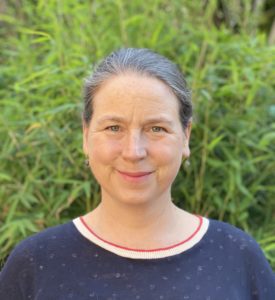
School days
Fifty years ago, Chris Nicholson ’54 was among the leaders who established The Children’s School in 1971, which is now called Richmond Friends School and is a short walk from Earlham’s campus.
“Chris had a vision for an inclusive, student-centered school,” said Steve Cleaver, the head of school at Richmond Friends School, which began with seven students and Nicholson as the lone teacher. Warren and Nancy Smith joined Nicholson as co-founders.
“We have grown to serve nearly 90 students annually and remain committed to providing a quality educational experience for each child within a community that is explicitly framed by principles of the Religious Society of Friends,” Cleaver said. “After fifty years, you can still find Chris on campus and engaging with students during all-school meetings.”
Before growing into a preschool-to-eighth-grade school of choice in Richmond, the independent Quaker school leaned heavily on community resources to frame the school’s curriculum. Nicholson shared her story in a letter to the editor published by the Palladium-Item on Sept. 18, 2011.
“The neighborhood provided our social studies curriculum. We had a post office, fire station, supermarket, produce market, pharmacy, hardware store, all levels of educational institutions, several churches and a city park within walking distance,” Nicholson wrote. “We ‘sidewalk supervised’ the building of the north tower of Interfaith Housing and the destruction and construction required to build Doan and Mills Funeral Home. This inspired much counting, measuring, recording and writing.”
Families and fairness
Twenty-five years after Nicholson turned her vision into a school, Charlie Asher ’74 and his wife, Barb, established the Freedom 22 Foundation in Indianapolis to support initiatives in the fields of criminal justice, family law and K-8 education.
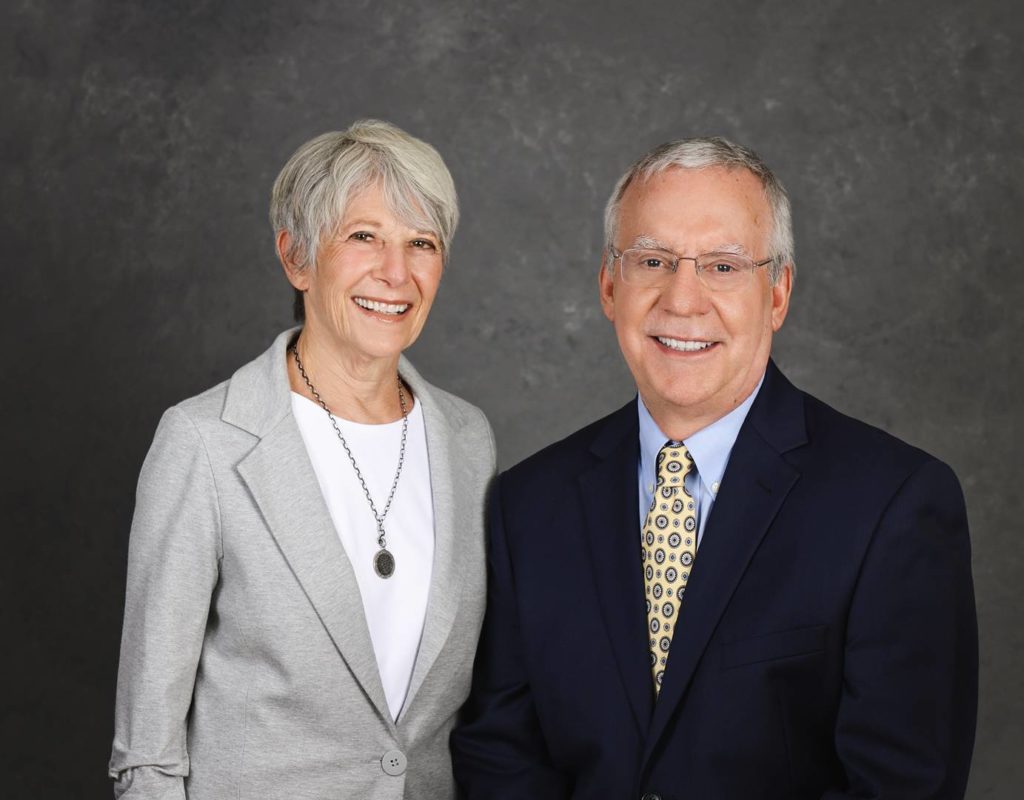
The Freedom 22 Foundation serves diverse needs, but its focus is on strengthening families in crisis and bringing more fairness to persons charged with or convicted of crimes.
Its initiatives include the websites uptoparents.org for separated and divorced parents to build family peace and defensemap.com for criminally charged persons to investigate and tell their backstories. Others, like the Earning Another Look program, offer help on sentence modifications to Indiana inmates demonstrating outstanding conduct and self-improvement while incarcerated. An upcoming documentary opposing the War on Drugs is also on the docket.
The Ashers have combined their respective backgrounds in criminal defense law and social work to push back against what they see as some enduringly unhelpful societal assumptions.
“Over time almost every profession seems to become beholden to sacred cows that ill-serve the public,” Charlie said.
“Lawyers are taught to see divorces and paternity cases as disputes, even though the parents’ best interests are overwhelmingly mutual,” he said. “We’re taught to judge people by the worst thing they’ve ever done, even though we’d never want such a judgment on us. We’re taught to think a War on Drugs that’s spiked American overdose deaths from 6,000 a year to over 100,000 a year is a sensible thing. And much more.”
Barb Asher cautioned that Freedom 22’s vision can sometimes outstrip its resources and capabilities.
“We have to be careful,” she said. “No charity, let alone a small family charity, can remake any profession.”
“But,” Charlie added, “it’s still surprising to notice some creative places where a focused response can make some difference.”
“And it sure gives you a reason to get up every day,” Barb said.
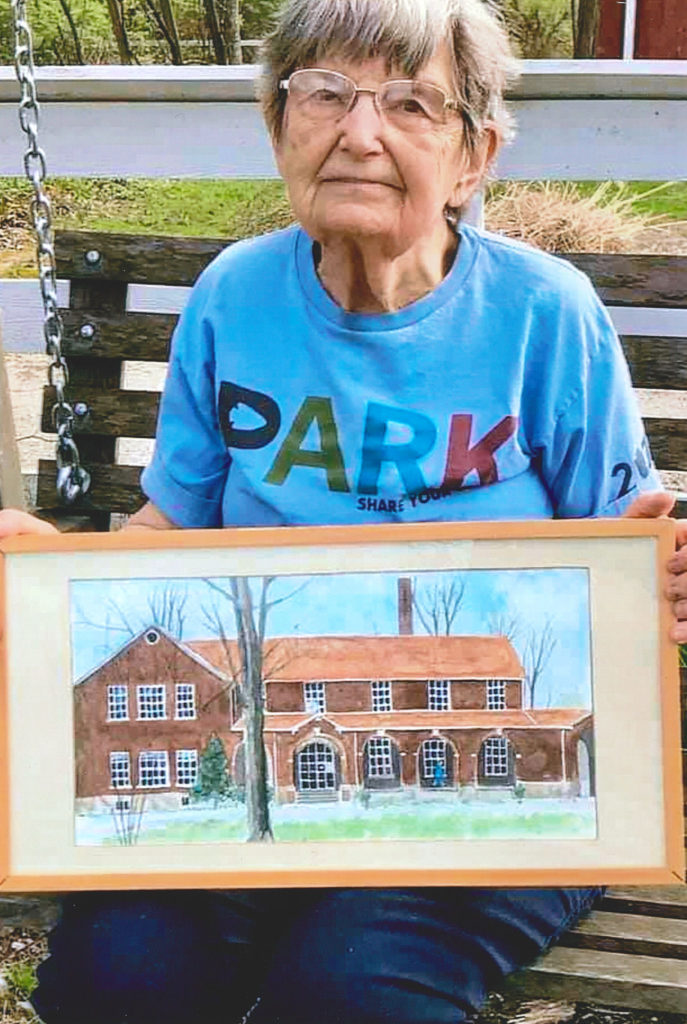
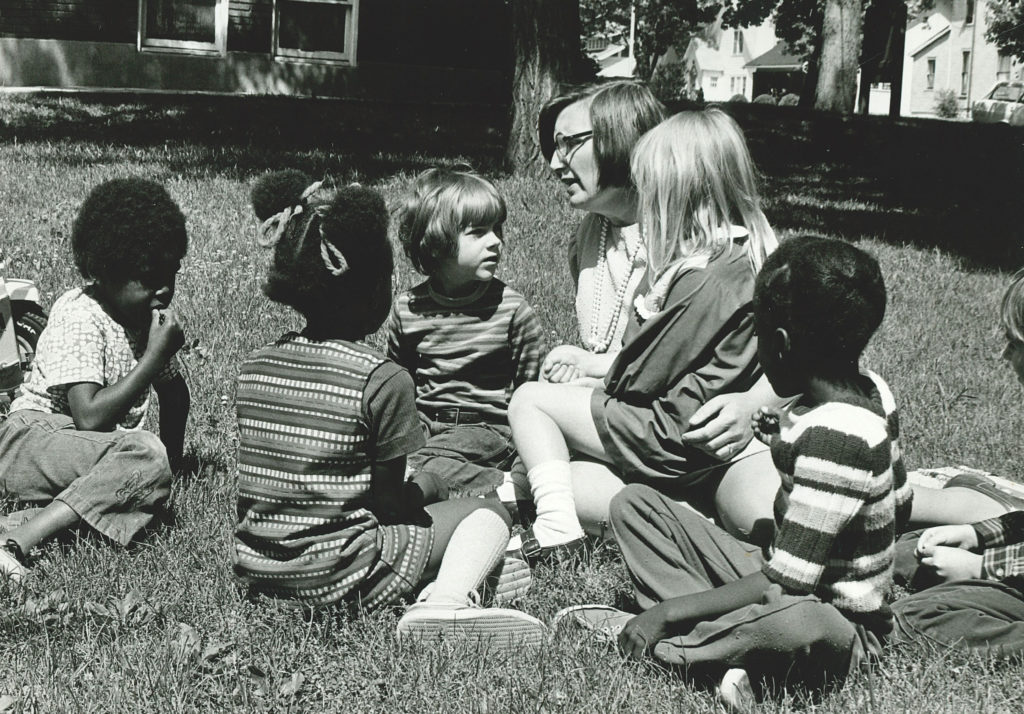
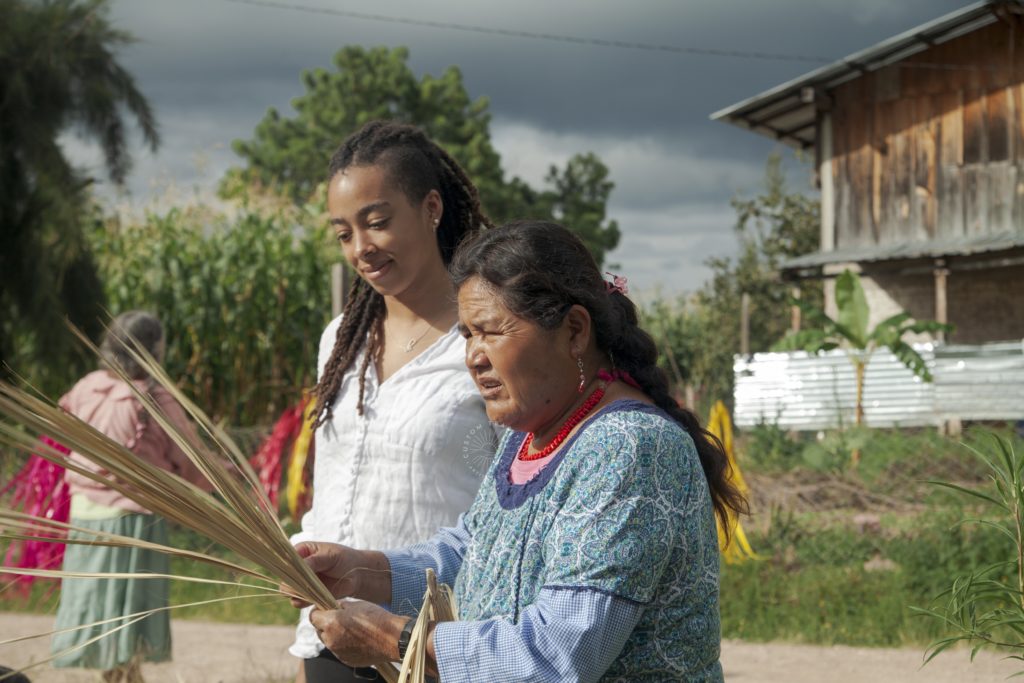
Hand-crafted, with a worldwide reach
Like Crowe and her Empathy Bootcamp, Chisama Ku Penn’s ’16 founders’ story is just beginning. The recent graduate established Custom Tradition in 2019 to give indigenous artisans a platform to promote their work and share their products with a global audience. The organization was granted non-profit status last October.
Custom Tradition is partnering with one Mixtec community of indigenous women artisans whose livelihoods are at risk. Each woman has family members who have had to leave the country for the United States to find work. They have limited access to the internet and sell their handicrafts at in-person markets or from tourism sales.
Penn lived with the collective in the Mexican state of Oaxaca for three weeks and documented the experience with help from her former photography teaching assistant, Natalie Reitz ’14. The collective is composed of women artisans who make baskets, hats and mats out of dried palm leaves using a traditional technique that is popular in Oaxaca.
“When the COVID pandemic happened, all of that went away,” Penn said. “Tourism decreased and the markets closed because that would require people to gather in large groups. They are limited right now to people like me who purchase their products and sell them online.
“I’m trying to help these women preserve their traditions and close that gap between them and the global market,” Penn said. “I want to make sure they have a sustainable option to make an income for themselves.
“I do that by working with them directly under a fair-trade model—paying them promptly and fairly and respecting their cultural traditions,” she said. “Getting to know them as people, allowing them to have autonomy over how they want to work and when they want to work.”
Penn is currently running a campaign on IFUNDWOMEN to further develop her vision for Custom Tradition and establish a grant program to help the collective expand their business operations and support healthcare needs, including vision care.
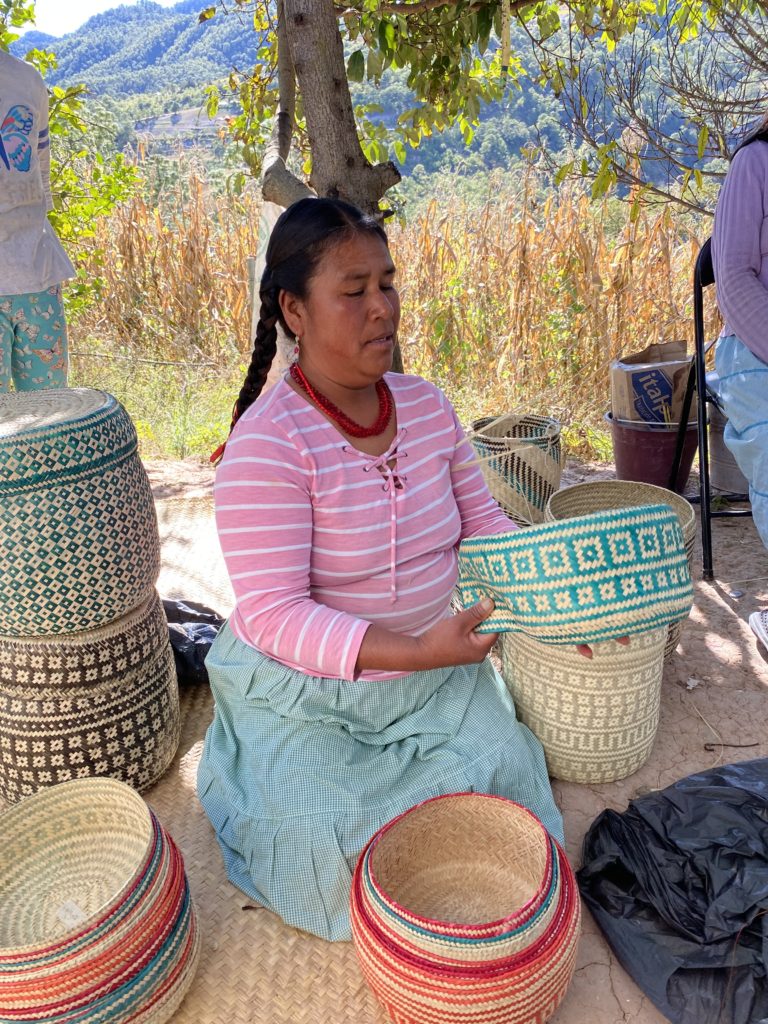
Founders inspiring founders
Custom Tradition’s work is inspired by Bean Voyage, a project started by five Earlham students in 2014 that has grown into a thriving nonprofit social enterprise led by Abhinav Khanal ’16 and Sunghee Tark ’16. Bean Voyage describes themselves as a feminist nonprofit social enterprise on a mission to eradicate the gender gap in farming communities.
“It was mostly students from my class,” Penn said. “I felt a sense of pride knowing that these people who were doing this amazing project had also come from Earlham and that they were people I would see or pass by daily on The Heart or in Saga. That is what inspired me; knowing that people from my community were doing something amazing, and because I was from the same community, I, too, had the potential to do great and impactful work.”
Penn said her Earlham education provided a spark for the rest. Originally planning to pursue a degree in international studies at Earlham, Penn pivoted to Spanish and Hispanic studies quickly after arriving on campus. A Bonner Scholar, the Atlanta native also volunteered with the local nonprofit Amigos during all four years of her undergraduate studies, allowing her to work with an organization serving the Hispanic community in Richmond.
“I just really loved the Spanish department at the time,” Penn recalls. “The professors were really great people, and I was drawn to them as people and teachers. I wanted to understand the Spanish language from the inside out—the culture, the linguistic aspect of it, the literary aspect of it.”
During her senior year, Penn was awarded a Fulbright to become an English-language teaching assistant in Argentina, an achievement that further propelled her professional aspirations by igniting curiosity over the country’s experience with immigration.
“Argentina is very European and heavily influenced by immigration from Spain, Italy and Germany,” she said. “When you talk to people, there is a sense that indigenous people don’t live in the country anymore and that they have been erased from modern culture. In my travels to different parts of the country, I talked with ancestors of native peoples and found that to not be true.”
After completing her Fulbright, Penn continued traveling and spent two years working various non-profit and community organizations. She also began thinking more about how she could continue to be involved in work related to her degree while still making an impact on the lives of the people she worked with.
“At the time, I was looking for ways to continue my education in Spanish—I didn’t want it to end with Earlham,” she said. “I was tired of working for people or organizations I couldn’t connect with.
“With Custom Tradition, I’m still of service to someone, but I’m continuing to learn and improve and bridging gaps between cultures and communities. All of my experiences at Earlham, as a Bonner Scholar, a Fulbright Scholar, have led me to this.”
“With Custom Tradition, I’m still of service to someone, but I’m continuing to learn and improve and bridging gaps between cultures and communities. All of my experiences at Earlham, as a Bonner Scholar, a Fulbright Scholar, have led me to this.”
Chisama Ku Penn
Story by Brian Zimmerman. Photos supplied. Photos in Oaxaca by Natalie Reitz ’14 (www.nataliejreitz.com).
